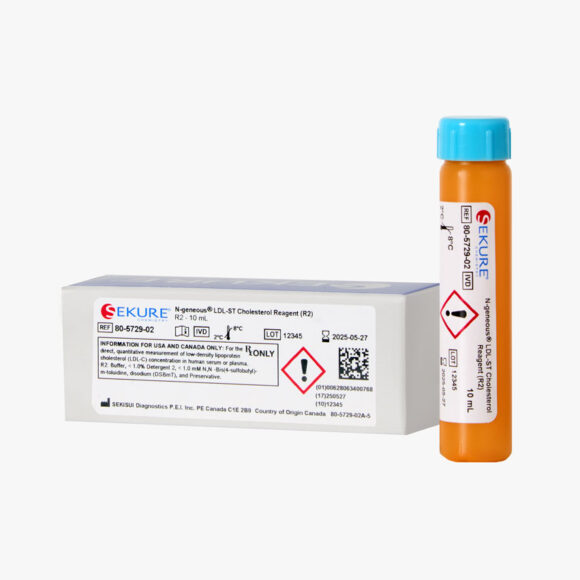Ordering Information
| Name | Size | Part | Package Insert |
|---|---|---|---|
| LDL REAGENT KIT (LIQUID SELECT) | 1x30 mL (R1); 1x10 mL (R2) | 7120 | Download |
| N-GENEOUS® LDL CHOLESTEROL REAGENT | 1x250 mL (R1) | 80-4598-00 | Download |
| N-GENEOUS® LDL CHOLESTEROL REAGENT | 1x80 mL (R2) | 80-4601-00 | N/A |
| N-GENEOUS® LDL-ST CHOLESTEROL REAGENT | 1x30 mL (R1) | 80-5727-02 | Download |
| N-GENEOUS® LDL-ST CHOLESTEROL REAGENT | 1x10 mL (R2) | 80-5729-02 | N/A |
| N-GENEOUS® LDL-ST CHOLESTEROL REAGENT | 1 x 250 mL (R1) | 80-5665-01 | N/A |
| N-GENEOUS® LDL-ST CHOLESTEROL REAGENT | 1x80 mL (R2) | 80-5714-00 | N/A |
Pricing and ordering details are determined by several factors. Please provide your contact information and we will be in touch shortly with more detailed product information.
Get in Touch
